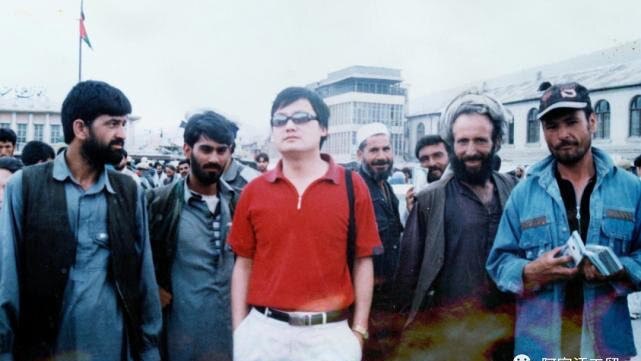Chinatown hopes new Afghan regime will be good for business
A handful of Chinese entrepreneurs are bunkered down in Kabul’s 11-storey ‘Belt and Road Chinatown’.

The Taliban has come to Kabul’s Chinatown — and, incredibly, the Chinese business community says it is impressed.
Most Chinese citizens were evacuated from Afghanistan months before the world’s most infamous religious extremists stormed the capital but a handful of Chinese entrepreneurs in Kabul’s “Belt and Road Chinatown” have bunkered down. They hope there will be lucrative business opportunities as the war-torn country returns to Taliban rule.
“We see the world is questioning the Taliban’s governance capacity and their conservative beliefs but we also see their positive behaviour since they entered Kabul,” businesswoman Gao Susu told The Australian.
“Especially towards China, they have shown more goodwill,” said Ms Gao, speaking from Kabul over WeChat.
Tens of thousands of Afghans have been evacuated in recent days, including more than 1000 to Australia.
Many fear reprisals for collaborating with the US and its allies.
China’s state media has crowed about the humiliation of its great strategic rival but Beijing is worried about the safety of its citizens.
Foreign ministry spokesman Wang Wenbin on Monday asked all Chinese left in the country to make contact with the embassy.
Beijing is also wary about what the return to power of the Taliban will mean for its far western territory of Xinjiang, which shares a border with Afghanistan. The East Turkestan Islamic Movement — a Uighur separatist movement — had its roots in Afghanistan.
“Although the Taliban is now showing a very big change in internal affairs and diplomacy, I don’t think its basic ideology has changed much,” said Liu Zongyi, a South Asian studies expert at the Shanghai Institute of International Studies.
Many Chinese strategists suspect America’s hasty withdrawal is a deliberate attempt to destabilise China’s western frontier and near neighbourhood.
Professor Zhu Yongbiao, director of the Center for Afghanistan Studies in Lanzhou University, said China would not follow it into “the Afghanistan trap”.
He told The Australian that America gets two key things wrong with China’s relationship with Afghanistan.
Other strategic voices in China are more bullish.
Zhou Bo, a former senior colonel in the People’s Liberation Army, has argued that America’s hasty retreat presents a “golden opportunity” for China.
“Afghanistan has long been considered a graveyard for conquerors — Alexander the Great, the British Empire, the Soviet Union and now the US,” Mr Zhou wrote in a recent essay in the New York Times.
“Now China enters – armed not with bombs but construction blueprints, and a chance to prove the curse can be broken.”
China’s state-owned enterprises are not yet convinced.
Those with operations in Afghanistan are bracing for political risk from the Taliban’s rule. They also worry about exposure to potential sanctions from the US and its allies.
Big projects were already difficult enough. China Metallurgical Group Corp invested in a $US3bn copper mine project 40km southeast of Kabul in 2007.
More than a decade after signing that 30-year lease — the biggest foreign investment deal in Afghanistan’s history — no progress has been made.
The Global Times on Monday reported that state-owned enterprises were now waiting for instructions from Beijing on the new “Chinese national strategy”.
Back in Kabul’s Chinatown, Ms Gao and her Chinese business partners hope their 11-storey commercial precinct will prosper in the new regime once things settle down. It opened two years ago, stocking shampoo, toilet paper, electric fans and hundreds of other consumer and industrial products hard to source in the landlocked country.
A year ago, a stainless steel “Belt and Road” sign — sourced from Shenzhen, in China’s south — was hung on its 11th storey, linking the commercial precinct to President Xi Jinping’s overarching foreign policy doctrine.
Chinatown’s founder, Yu Minghui, presided over a simple ceremony to mark the occasion, raising the Chinese national flag.
Mr Yu, who remains in Kabul, told Chinese state media that the Taliban had so far been encouraging of Chinatown’s future.
He said the Taliban had already visited Chinatown, asking to be informed about any business hurdles they were encountering. “They say that Chinese people are friends, and should not be afraid to ask if they run into any trouble.”



